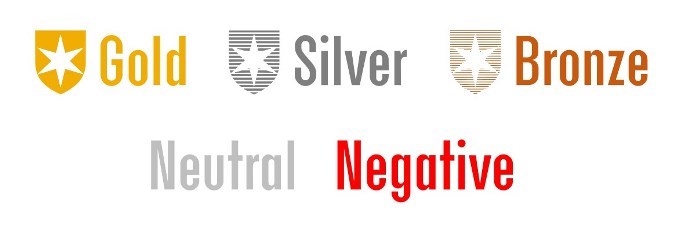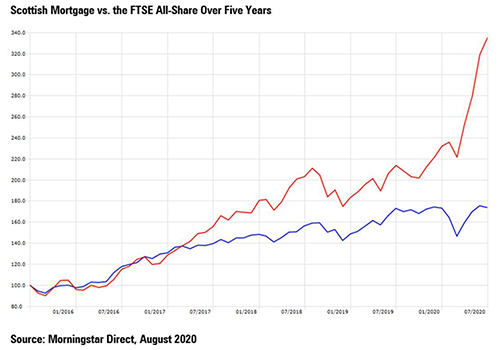
Morningstar analysts have downgraded the Scottish Mortgage Investment Trust (SMT) following changes to the way that funds are rated.
The investment trust has been a long-term favourite with investors after years of delivering stellar returns. But under Morningstar's enhanced ratings framework, analysts put a greater emphasis on fund fees. While the trust's annual charge is low at 0.36%, the additional cost of its gearing (borrowing) makes its price less competitive.
Morningstar analysts said: "An ongoing charge of 0.36% is offset when the cost of debt is considered, pushing the representative cost up to 0.77%. This is not as attractive as the management fee alone, although it is still attractive given the access the trust offers to unquoted assets."
The trust, which previously held a coveted Gold Morningstar Analyst rating has been downgraded to Silver. Morningstar analyst Robert Starkey says: “Scottish Mortgage Trust continues to deliver on its unique mandate…The combination of a best-in-class team with a well-executed process awards the strategy a rating of Silver.”
Scottish Mortgage, which launched in 1909, has attracted a loyal band of followers after years of table-topping performance. It has delivered annualised returns of 28.93% over five years, and just shy of 24% over a decade. Over the past year alone the trust is up an incredible 74%. It’s no surprise, then, that assets under management have swelled to £14.5 billion. But analysts point out that the trust, which focuses on high-growth disruptor companies, is likely to be volatile and people should consider this before investing.
Patient Investors
The fund’s strong returns do not come without risk. The managers are allowed to invest up to 30% of the trust’s assets in unlisted companies (a limit which was raised from 25%). Investing in these illiquid assets has been a contentious issue in the investment industry for some time, particularly since the suspension and subsequent closure of the Woodford Equity Income fund.
However, experts say that an investment trust is a more suitable place in which to invest in such assets because the fund manager is not forced to sell his holdings when there are outflows.
Morningstar’s Starkey adds: “The management believes that many companies are able to perform better away from the intraday spotlight of quoted markets, where investors and management are increasingly focused on quarterly figures to the detriment of longer-term investment and growth.”

With this approach, managers James Anderson and Tom Slater have earned themselves a strong reputation as “patient and cornerstone investors” in unlisted companies and are often given early access to opportunities not available to others. Starkey adds that Baillie Gifford (the parent company of the trust) has a robust framework for valuation and governance around unlisted investments which “gives comfort”.
Scottish Mortgage has a bias towards fast-growing tech firms and companies disrupting their industries – and it takes big bets on them. The trust's top holding is Tesla, accounting for 11.1% of the portfolio, followed by Amazon, which accounts for 9.3% of assets, according to Morningstar data. Some 16.7% of the portfolio is in Chinese stocks including internet giants Tencent and Alibaba. Among its unlisted holdings are Elon Musk’s aerospace outfit SpaceX and home-sharing app AirBnb.
Starkey concludes: “The inclusion of unlisted investments, structural gearing and a relatively concentrated portfolio, are likely to lead to a bumpy ride at times. This trust should be a long-term investment and part of a wider, diversified portfolio.”




























